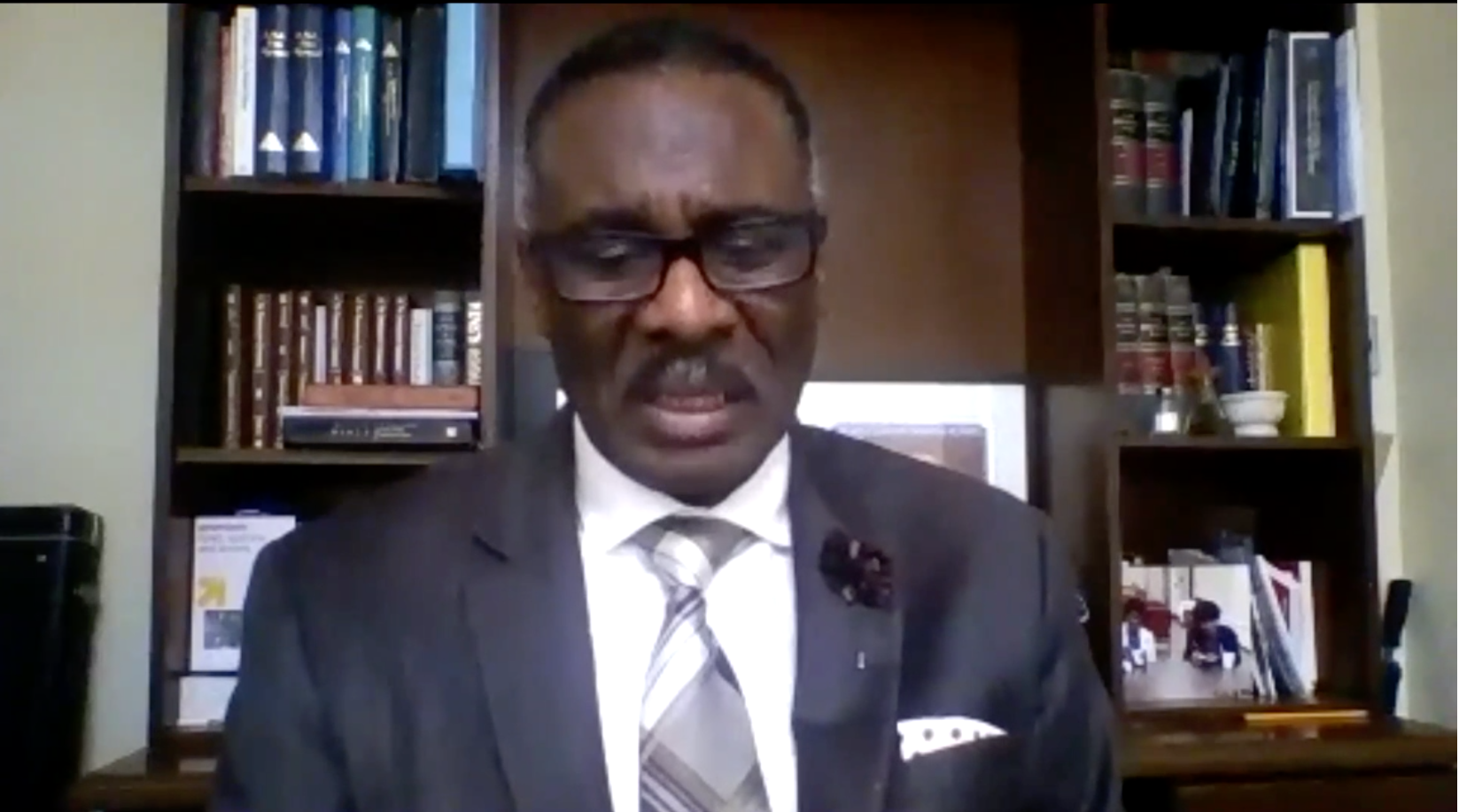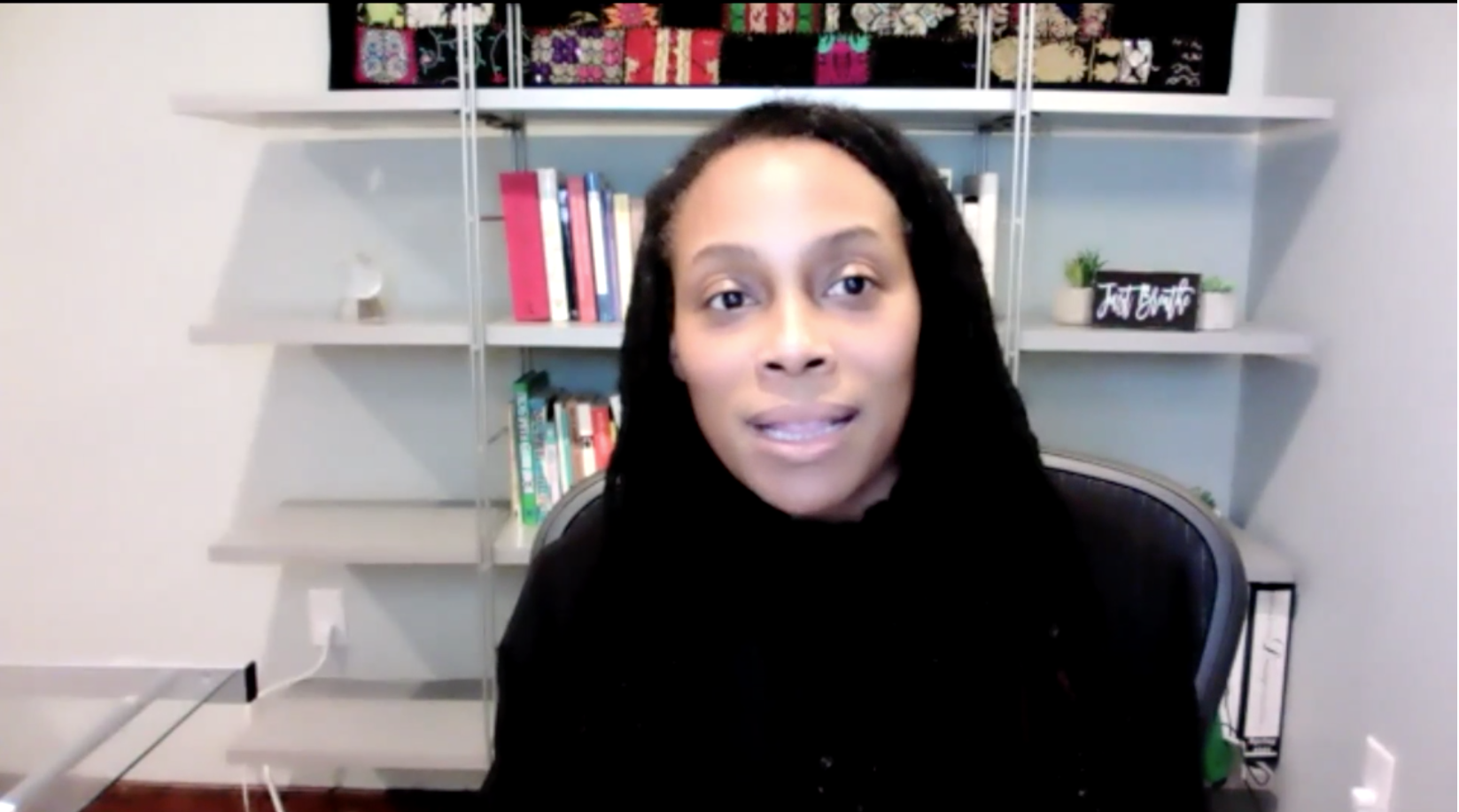African-American and Latino communities are three times more likely to be hospitalized for COVID-19, and are twice as likely to die from it. These are facts, but there also is a great deal of inaccurate information online and in the media about Covid-19 and the vaccines that are designed to fight it. To help dispel some of the misinformation, a panel of Yale experts participated in a webinar on March 3 which answered questions from the public, addressing their concerns and underlining the importance of vaccination in the African American and Latino communities. Nancy J. Brown, MD, Jean and David W. Wallace Dean and C.N.H. Long Professor of Internal Medicine, served as moderator and guided the discussion of an expert panel both from Yale and the federal government.

Two Cultural Ambassadors, Reverend Dr. Leroy O. Perry, Jr., pastor of St. Stephen’s AME Zion Church in Branford, and Reverend Elvin Clayton, pastor of Walter’s Memorial AME Zion Church in Bridgeport, both participated in the clinical trial for the Pfizer BioNTech vaccine in August. “[We participated in the clinical trial] so that we could say to our communities that this is important step for all of us,” said Perry. “We wanted to have them see that we believed enough in it to take it, and that it was safe, and that it was critical for our community that has been impacted in such a dramatic way.”
“I did this because there were few people of color early on that participated,” said Clayton. In order to be successfully we need all populations to take part, not only in this study but all studies. [When the trial] was unblinded and I found out I got the actual vaccine, it was a happy day.”

Broadening access to vaccines and overcoming structural barriers to vaccines, such as lack of transportation and pharmacy deserts, are key to change. “We have to, in a conversation about vaccine confidence, also talk about vaccine access,” she said. “It has to be easy and convenient. When people are at “yes,” they have to connect with the vaccine.”
In addition to federal and state efforts to connect people to vaccines, such as setting up community vaccine centers and partnering with retail pharmacies, community organizations are crucial to making those connections that, as Nunez-Smith said, bring people to “yes.” A YCCI-sponsored pilot program taught seniors at St. Stephen’s church via a Zoom seminar how to access health services online, including telemedicine visits, and connect with their doctors through email.
“One of the things we have been trying to suggest to our community is that we need to take charge of our health,” said Perry. “We don’t often look at the people on the bottom, who have a feeling of hopelessness. And when it comes to matters of death, it is not of great importance to them. You have to reach out to these people and tell them they are important. You can be around if you take charge of your health. And the consequences not only affect you but your community.”
Harnessing the power of informatics has also been crucial to Yale’s efforts during the pandemic. “The EHR [electronic health record] has been powerful as a tool to help fight Covid,” said Allen Hsiao, MD, associate professor of pediatrics (emergency medicine) and chief medical information officer of YSM and YNHH. Hsiao said that by employing the resources and information available in the EHR, Yale has been able to track hospital patients, geomap the course of the disease, and deploy resources such as personal protective equipment, as well as frontline caregivers, to the places they are needed most.
Yale New Haven Health has also set up a hotline, 833-ASK-YNHH, for vaccine information, as well as pop-up sites at the Bethel AME Church and Christian Tabernacle Baptist Church to help people obtain vaccines more easily, said Thomas Balcezak, MD, associate clinical professor of internal medicine and chief clinical officer of YNHH. Yale has also successfully piloted a “reverse 911” program that targets individuals in particular ZIP codes with higher rates of COVID-19 and prioritizing their place in the line to receive vaccines.
One question posed addressed the issue of vaccine access for undocumented immigrants and refugees, and whether personal data regarding immigration status would be asked for and collected by people seeking vaccines. The answer is no, said Nunez-Smith. “There are firewalls. None of the data collected go to Immigration. All vaccination sites are immigration enforcement-free zones.” While early on, registration systems asked about citizenship, this is no longer the case, she said.
One of the things we have been trying to suggest to our community is that we need to take charge of our health. We don’t often look at the people on the bottom, who have a feeling of hopelessness.
Rev. Dr. Leroy O. Perry
“These are some of the specific structural barriers that have to be overcome,” said Nunez-Smith. “Communities are experts in what they need most. Stakeholder conversations made clear the concerns.”
Despite the challenges, there were many hopeful messages about the promise of change the new vaccines (“Count ’em. Three!” said Nunez-Smith) could bring. “They are really highly effective uniformly across the board in preventing severe disease, hospitalizations, and deaths,” said Onyema Ogbuagu, MBBCh, who led clinical trials for vaccines, and presented an overview of the science behind the vaccines during the webinar. “That is really worth celebrating.”
“I tell all my friends, and all my congregants, I got the shot,” said Reverend Perry. “That’s good news, that’s gospel news. Marcella said to me once, 'it’s the vaccine or the virus.' That’s the good news here.”